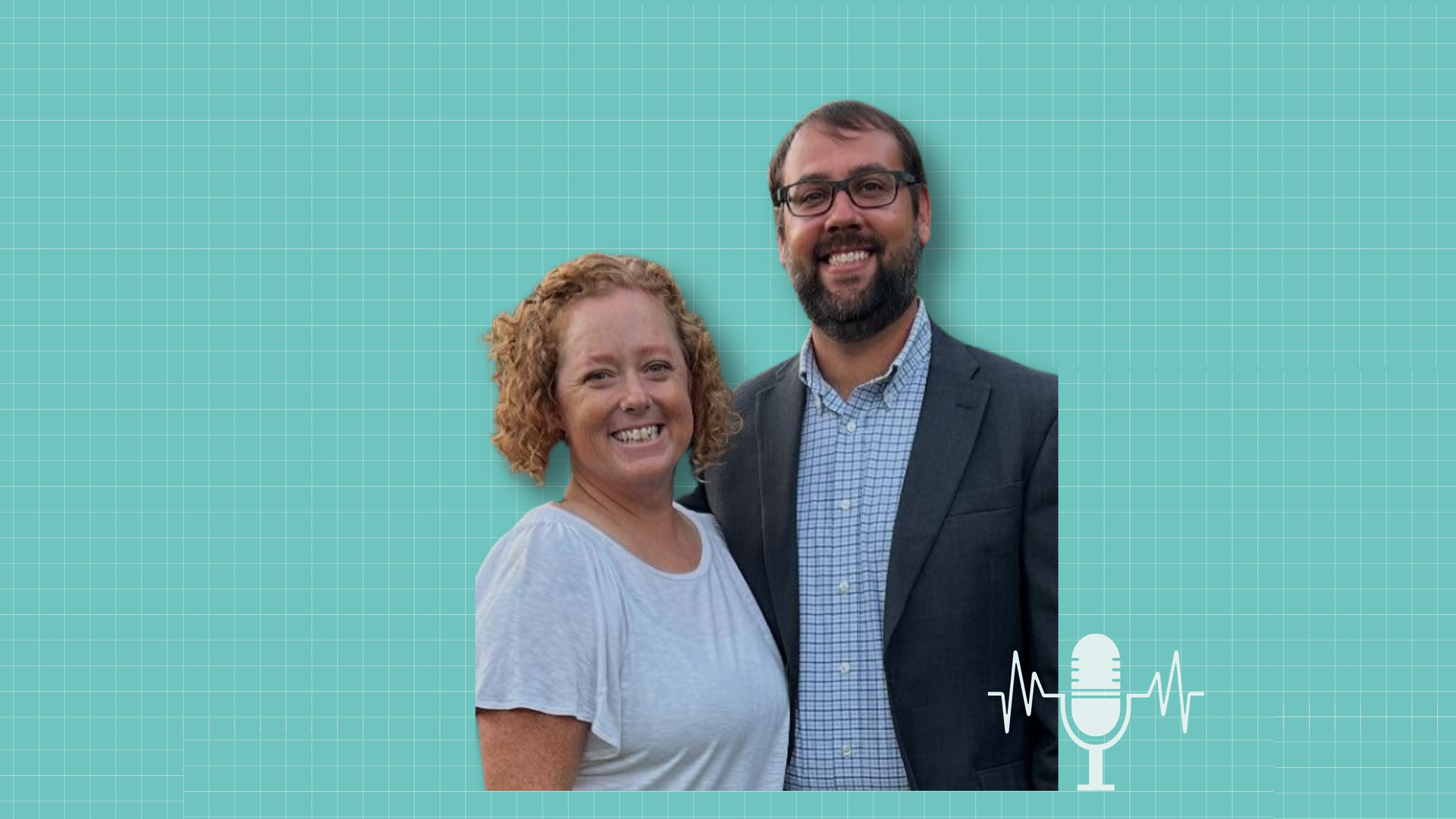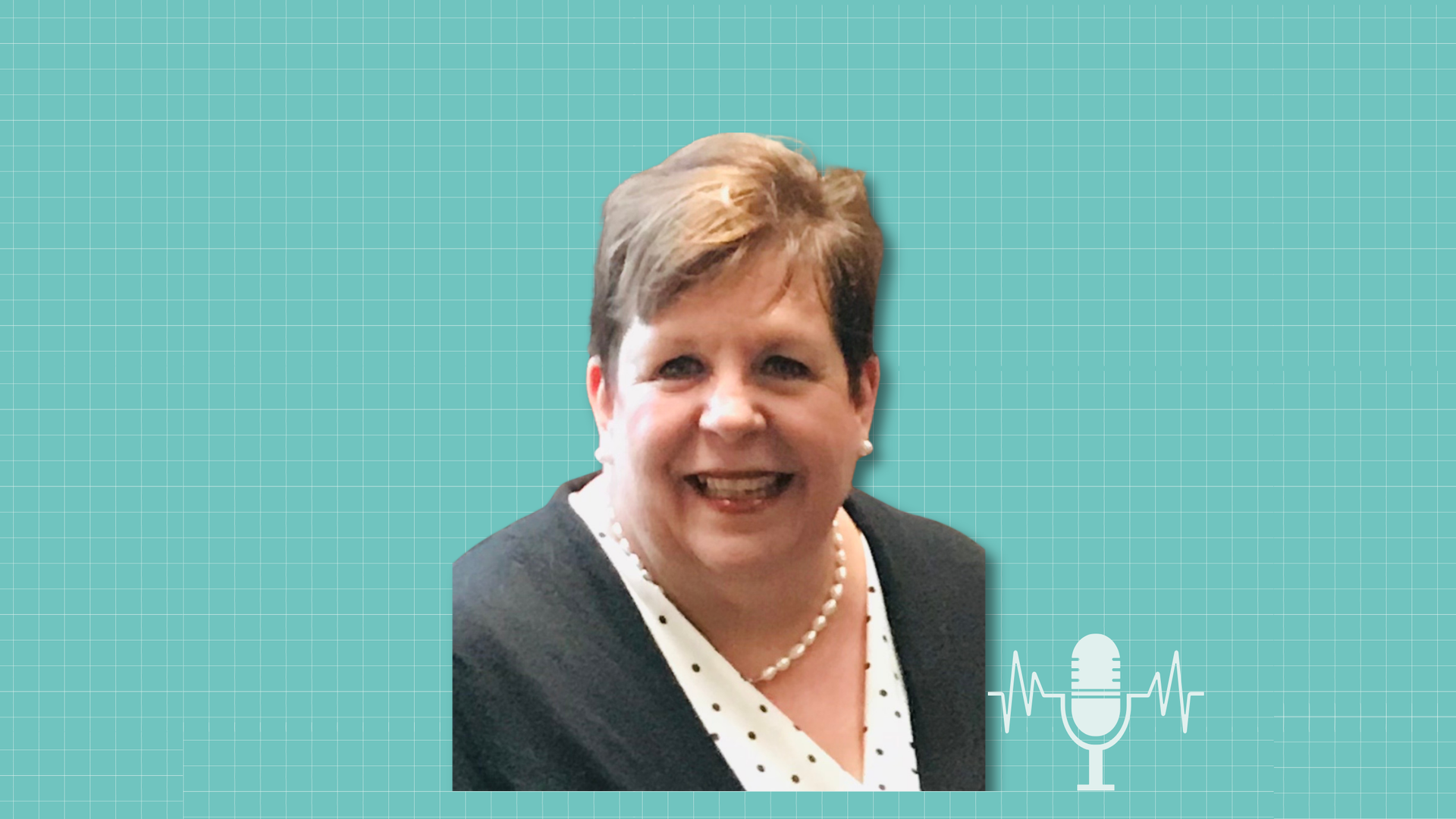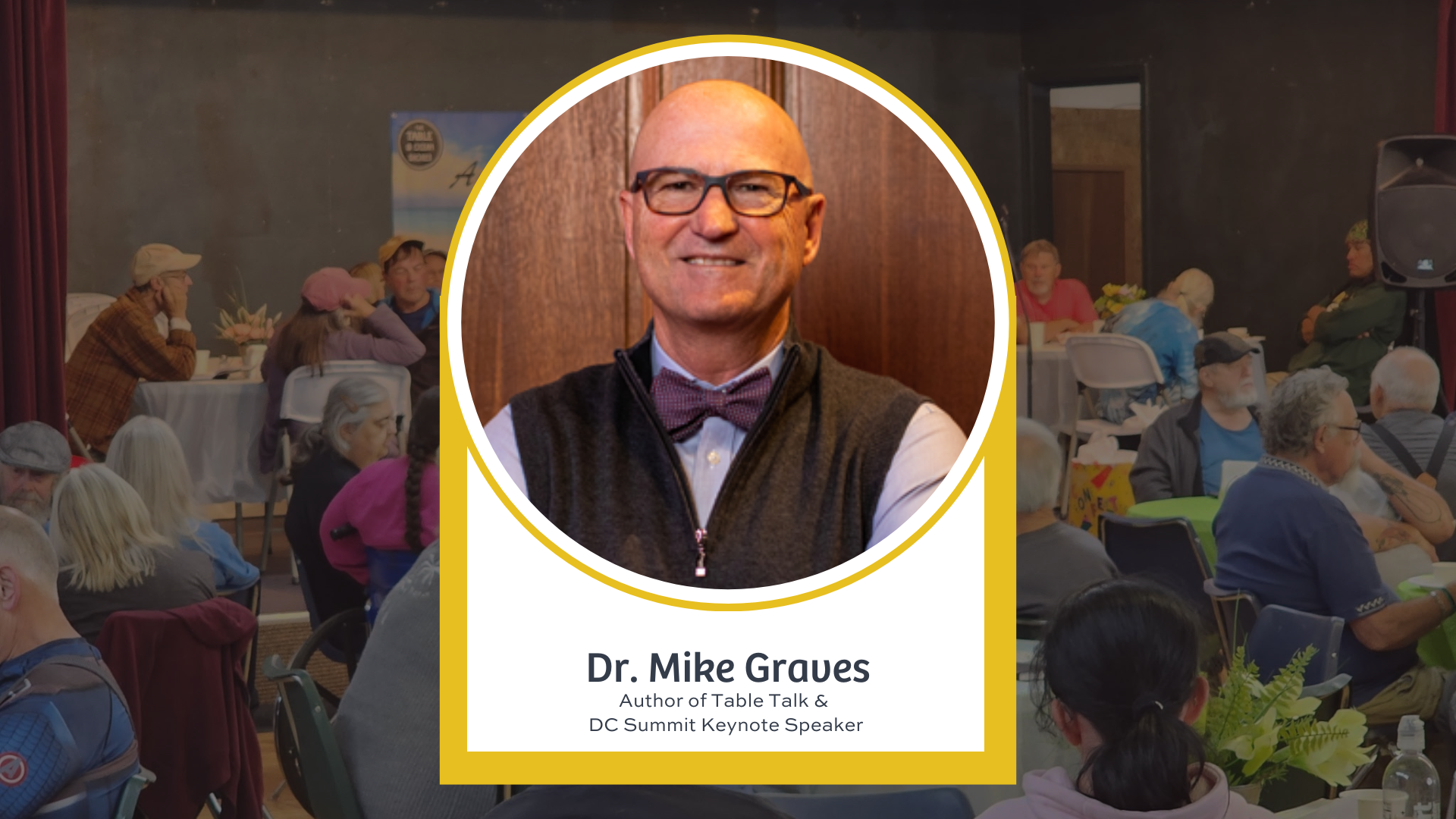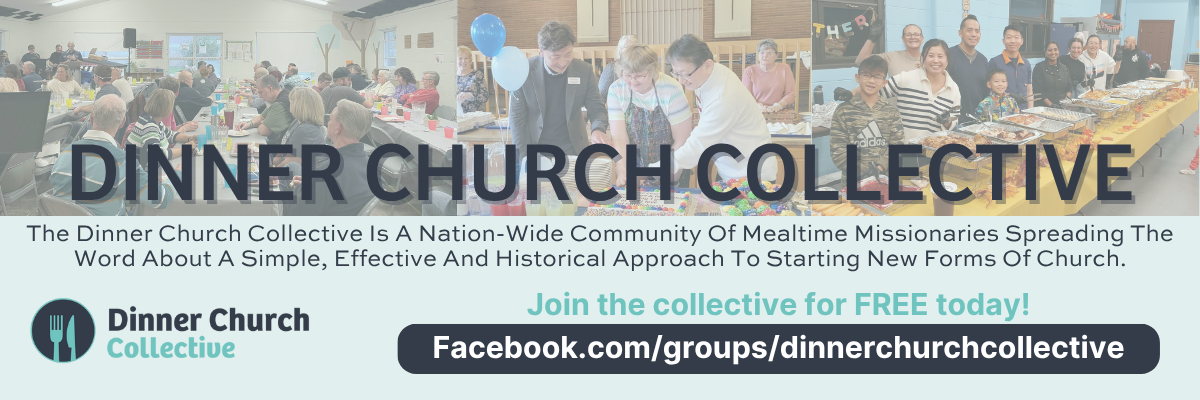BibleProject’s Tim Mackie and Jon Collins on Eating Like Jesus [Bonus Episode]
Listen
Watch
Show Notes
“Meals were the main venue for the arrival of God’s kingdom,” says Tim Mackie, describing the work of Jesus in the books of Luke and Acts.
In this unique bonus episode, host Verlon Fosner and producer Chris Morton welcome BibleProject’s Tim Mackie (Bible scholar) and Jon Collins (Explainer and Visual Storyteller) to help us understand why Jesus’ ministry focused so much on meals.
BibleProject’s enormously popular animated explainer videos, in-depth podcast, and ever-expanding free library of resources have helped Christians around the world grow in their understanding of Scripture. This episode will help you understand how the Dinner Church movement is a natural outgrowth of Jesus’ own ministry approach. You will also gain useful insight into how to better teach the stories of Jesus at your tables.
Explore BibleProject resources at bibleproject.com, subscribe to their YouTube channel at youtube.com/bibleproject, and listen to their podcast at bibleproject.com/podcasts/the-bible-project-podcast.
Timothy Mackie, PhD is married to Jessica, and together they are raising two little boys, Roman and August, in the wonderful city of Portland, Oregon. Tim is an adjunct professor of biblical studies at Western Seminary and a creative writer for BibleProject. He’s been fascinated with Jesus and his Jewish heritage ever since he became a Christian at 20 years old through an urban outreach ministry to skateboarders in Portland called SkateChurch. Tim discovered the wonderful world of biblical studies and languages at Multnomah University and Western Seminary, and he had the privilege of doing a PhD in Hebrew and Jewish Studies at the University of Wisconsin-Madison. Tim’s greatest passion is to help people grasp the beautiful and compelling story of the ancient Scriptures and how they lead us to Jesus of Nazareth.
Jon Collins was born and raised in the Pacific Northwest and is proud to call Portland home. He has been married for 11 years and has two boys. Jon received a BA in Bible and Theology at Multnomah University. After working overseas in Christian ministry and then serving for a year as a pastor, Jon stepped into the marketplace to explore digital communication. He started two digital communication companies and worked with clients ranging from Google and P&G to Silicon Valley start-ups and nonprofits. In 2009, Jon’s first company, Epipheo, introduced the business world to “explainer videos.” Jon has a long history of creating shareable videos that spread messages organically on the internet. In early 2016, Jon ended his participation in former business ventures to work on BibleProject full-time. He is thrilled to be working on something so meaningful.
Related Resources:
Email us: podcasts@freshexpressions.com
Subscribe & Review
Help us get the word out by subscribing and leaving a review for Rural Renewal Podcast on your favorite platform.
Interview Summary
“Meals were the main venue for the arrival of God’s kingdom,” says Tim Mackie, describing the work of Jesus in the books of Luke and Acts.
Where did the idea of Dinner Church come from?
At the Dinner Church Collective, we often refer to Dinner Church as a “recovery project” where Christian leaders are rediscovering a very old approach to church. How old?
To answer that question, we asked Tim Mackie and Jon Collins, co-founders of BibleProject, to help us explore the connection between Dinner Church and Jesus’ practices of declaring God’s kingdom.
Tim Mackie is a Biblical scholar with a Ph.D. in Hebrew Bible and Jewish Studies. He co-founded BibleProject and serves as its lead research scholar. His lifelong friend and co-founder, Jon Collins, brings a potent passion for the Bible, the Church and communication. Jon’s earlier work focused on creating “explainer videos” for technology companies, and he now uses those skills to help people explore Scripture.
Note: This conversation has been edited for length and clarity, with only minor grammatical edits. For the full conversation, subscribe to the podcast on Apple Podcast, Spotify or watch the podcast video on YouTube
The Genesis of BibleProject
Verlon Fosner
Let’s just begin, Tim and Jon, unpacking the origin of BibleProject.
Jon Collins
I’ll give it a shot. I grew up in the church reading the Bible, which was significant in my life. However, in my 20s, I felt disconnected from understanding how to read it and gave up. Tim and I met in Bible school, where he was delving deep into biblical literature, while I was moving into creating explainer videos for technology products. Our ongoing conversations about the Bible led me to see it differently—as God’s wisdom and Jewish meditation literature. This inspired me to propose making videos to explain these insights, which we started doing ten years ago. Our aim was to create media that helps people encounter the Bible in this transformative way.
Tim Mackie
Another key aspect was the business model Jon brought—a crowdfunded nonprofit endeavor. We believed that if people found value in our work, they would support it. And they did, allowing us to continue creating and expanding into podcasts and free online classes in biblical theology. It’s been ten years now, and the response has been overwhelmingly positive.
Verlon Fosner
Not too far out of the gate, you guys had a huge run, as it went pretty viral. Talk about that just coming out of the gate, if you will, the experience that you had with some of your first videos.
Jon Collins
Initially, it was a slow and steady growth with a small but invested audience. However, about three years in, a significant inflection point occurred when a respected pastor endorsed our work, accelerating our content creation and reach.
The Role of Meals in Jesus’ Ministry
Chris Morton
Tim, I’ve heard you discuss the initial followers of Jesus and their response to his teachings. How do you see that in Scripture, and what do you think is going on there?
Tim Mackie
The Gospel of Luke uniquely emphasizes Jesus’ public meals as a vital part of his kingdom announcement. These meals were social events that broke down societal barriers and promoted equality and community. This practice continued in the early church, as seen in Acts and Paul’s letters, where communal meals were central to the life of the early Christians. These meals were more than just about eating; they were about embodying the values of the kingdom of God.
Chris Morton
Any thoughts just carrying on and how you see that in the epistles and the book of Acts?
Tim Mackie
Oh, well, Acts, you know that famous line of the Jerusalem church post-Pentecost, and they dedicated themselves to a life of learning together, to the apostles’ teaching, a life of prayer. And it’s plural in Greek in Acts 2:42, to the prayers, like saying the Jesus prayer and the Jewish liturgies. And then he also says to the sharing of possessions and the breaking of bread, which is the shorthand for they regularly had meals. Isn’t that interesting? It’s like a discipline to have these communal meals together.
And then that plays on through Acts where you see these moments and a meal isn’t always mentioned. But like when Paul’s having his all-night Bible study marathon and Eutychus falls out of the window, I mean, that was definitely, definitely they were having a meal. There was some part of that. So there’s also all these implicit meals. Paul talks about in all the house churches and the networks that he started. He mentions meals in the letter to the Galatians and to the Corinthians. And actually, it was those meals that exposed divisions in the community. And Paul trying to heal those divisions that were exposed at the table to get people back to eating meals together was like the way like how Paul would know that the gospel of Jesus is really transforming people is whether they eat together. That’s like his vision in Galatians and Corinthians and not the rich and the poor doing their different thing and not the circumcised or uncircumcised in different rooms. For him, it’s one room, one table.
And that’s just so fascinating, because that’s not the rubric of like success that comes into many of our minds. But apparently for Paul, if you can get people around the table together regularly doing a replay of the last Passover of Jesus, then something real magical can happen.
Verlon Fosner
Tim, in particular, Alan Hirsch makes a statement that if we interpret Scripture through the epistles, it creates a strange distortion, whereas to interpret all the Scriptures through the Gospels, there is a clarity and there is a possibility of unification of the book. Does that inspire or how would you respond to that?
Tim Mackie
Yeah, I think I would qualify that just a little bit. But, you know, I’m a Bible scholar at heart, and so I want to qualify everything probably needlessly most of the time. But in the early Jesus movement, actually, before there was such a thing as a collected form of the apostolic writings that we call the New Testament, there was the oral Jesus tradition, like actually the oral preserved eyewitness memories and the memorized bodies of teaching before like Matthew existed. So we’re in the earliest decades of the Jesus movement. And in that era, by the first 50, even to 100 years, the Bible was, for most followers of Jesus, the Greek Bible as heard, being read and sung at the meals, the weekly meals, and their liturgies. And it was actually what we call the Old Testament that was the main thing that was illuminating who Jesus was as his teachings and the stories about him were also recounted orally. And that’s a really important phase of the Jesus movement to remember that no one even had a New Testament to read the Old Testament in light of. What they had was the Old Testament to illuminate the Jesus whose stories we retell every week as we have meals. And so in many ways, it’s just as true that we read the Gospels in light of the Old Testament, and that it’s the Old Testament that illuminates the Jesus of the Gospels.
But then at the same time, there were so many twists and surprises that Jesus threw out there for how he was doing, what he was doing, that it forced his disciples to go reread and reprocess all sorts of things that they knew from their Scriptures. And so it’s always been not just reading backwards and not just reading forwards, but it’s always been the whole of Scripture and Jesus illuminating each other. And that continued to be the case even into the early church in ways that I’m still learning about right now. So that qualification may not matter to anybody than me in this moment, but I think it does matter to me, because what I want to know, what I do want to know is, did Jesus just arrive on the scene as like a brand new, innovative, unprecedented thing and everything changes in light of him? Or is it also the case that he really, like you said, was fulfilling the Torah and prophets like he was the hand slipping into a glove, but the glove had already been there for some time and he was slipping into it, but also adding some new shades of color or something to it that nobody had quite ever seen before. And I think it was probably more like that, a little more dynamic than just reading the Old Testament in light of the Gospels. But I agree with you and Alan that reading the whole Bible in light of the epistles is probably going to produce a bit of a strange creature.
Chris Morton
Verlon, how would you compare that with what you guys have learned and maybe just share a little bit about your community there in Seattle?
Verlon Fosner
Yeah. Well, we’ve recognized that Jesus primarily healed by day and then had dinner with all kinds of folks by night. It was almost this daily strategy and salvific strategy of planting the new kingdom. But his practical activity was this healing by day and then dinner with all different kinds of the least, the last, the religious leaders, whoever that he could drag into that room. And it seemed to be very strategic. And so we in with the dinner church, just taking back and recognizing it as a recovery project, not as an innovation, has taken us back into the same material that you’ve been talking about. And then of course, in a very formal way in that very famous Last Supper, we see Jesus hand off, hey, eat this meal together. Invite everybody else, which was the backdrop of the Passover. You invite all the lonely, the lost, the last, the widows, the strangers. You eat together, but from here on out, rather than remembering the escape from Egypt, talk about me. Remember me. That was the new Passover that birthed that night that they obviously took very seriously going forward.
Tim Mackie
Maybe just another thought. One big part of the project that I’ve forced Jon to go on with me this journey is seeing how the early stories in Genesis set up all the key themes and ideas for every part of the biblical story going onward. And meals. Eating. The eating of fruit is, of course, the famous iconic image from the Garden of Eden story at the beginning. But actually, God’s provision of food, the enjoyment of food, and then food becoming a problem and an obstacle to humans fulfilling their purpose in the world, but then also God’s desire to restore abundant food to people.
These are all such important ideas from the early pages of Scripture. So I think in recent years my reflections have been more also about that, about how the meal ministry of Jesus is enriched when we see it as a part of the Garden of Eden that was lost. And then Jesus is bringing the Garden of Eden back. The meals are a way of experiencing a little taste of Eden. Or ironically, a table can be an experience of exile from Eden, depending on the values that are in the story that the meal is telling.
Finding the Riddles in Jesus Stories
Chris Morton
Tim suggests that we should become better storytellers. Jon, I believe, your role in a lot of this project is being a storyteller. So do you have any thoughts for folks who are trying to prepare Jesus’s story every week about what makes a good story and how they can do a better job?
Jon Collins
Well, I’ve been mislabeled the storyteller. I like to call myself an explainer, and an explainer mostly cares about do you understand this idea? Do you understand what the passage is about or this idea that we’re talking about? Do you understand, if it’s a story, do you understand the story? And an explainer will use all sorts of tools to try to keep your attention and try to help you understand. Story is one of those tools. Telling stories to help you understand something. But that’s just one tool in the toolkit.
I think curiosity, I think helping people develop an internal, just wonder and curiosity. Like there’s something deeper here. I have questions, my questions are okay. Let’s follow the questions. Let’s not be afraid of the questions. So leading is a good storytelling technique. A good communication technique is leading with some tension. Like look at this. This is weird. This is hard. This is a riddle. This is strange. And then just letting it be strange and letting that tension just sit there. Now the rest of the time together we’re going to slice into this tension.
And I think maybe that’s just the one to leave you with, because I think our intuitions are to want to make this really simple and clear from the get-go. And I don’t want you to misconstrue tension with disbelief or with misunderstanding or a quest of misunderstanding. So I’m going to, like, not step into the tension. So I think this is a really good opportunity to come in. I mean, the Bible does this all the time. It just gives you a riddle and then forces you to deal with the fact that this is awkward. And I think that’s a wonderful communication technique to employ.
Reflection Questions:
- How can communal meals change the dynamics of your faith community?
- What new insights do you gain by reading the Old Testament in light of Jesus’ story?















